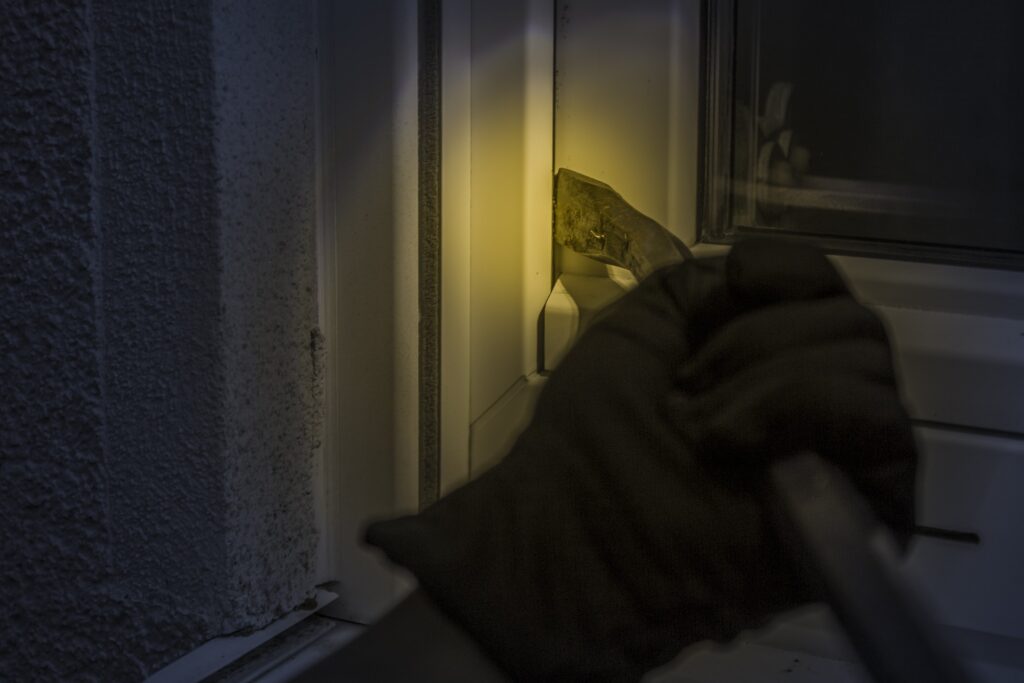Burglary
Burglary is a serious and alarming crime and affects thousands of Britons each year. According to figures, 34 burglaries occur per hour in the UK or around 817 daily.
A burglary occurs when a defendant enters private property intending to steal. During the COVID-19 lockdowns, burglaries declined, but we are now witnessing a resurgence as life returns to normal.
If you have been accused of burglary, this page can help. We explore what it is, how it differs from other theft-related crimes, and UK burglary sentencing guidelines.
Request A Free Consultation
What Is Burglary?
The definition of burglary is more specific than you might think. To be classified as a burglar, the defendant must enter a building or private premises, be a trespasser, and commit an offence. Usually, that offence is theft, but it can also be criminal damage or grievous bodily harm.
Courts in England and Wales may also consider an event a burglary if the defendant enters a home and flees after being disturbed before stealing anything. In this case, prosecutors may seek a charge of attempted burglary.


What Is The Difference Between Burglary And Robbery?
As discussed above, burglary occurs when criminals enter a home or commercial premises intending to deprive the victim of their property permanently. Burglaries can include force (in the cause of grievous bodily harm) but don’t always.
Aggravated burglary is a special case of burglary where the criminal carries or threatens to use a weapon once inside the home. For example, they might wield a knife to intimidate the owner into opening a safety deposit box.
Robbery has a different definition. It relates to circumstances where the defendant uses or threatens force against their victim before stealing from them. Examples include:-
- Threatening someone with a knife on public transport to get them to hand over cash
- Telling someone you will beat them up if they don’t hand over their phone
Critically, a robbery occurs in any situation in which a defendant uses or threatens force to deprive someone of their property. It can also occur in conjunction with other crimes, such as assault. If the person does not threaten or use violence, police may charge the defendant with a less serious offence, such as theft.
What Are The Criminal Penalties For Burglary In The UK?
Burglars of non-domestic buildings such as offices and shops can face sentences of up to ten years upon conviction. Residential burglaries attract a higher maximum sentence of 14 years because of the increased severity of their crimes.
Aggravated burglaries – where the defendant uses a weapon – can attract life sentences. These do not mean the defendant will spend their entire lives in prison if convicted, but it can mean they will remain on licence and must return to jail if they commit further offences.
How To Get Help
If you’ve been charged with burglary, you should seek legal assistance immediately. Partner with our team today and get a solicitor who understands your situation and can provide a robust legal defence. Get in touch for a no-obligation consultation and quote.



